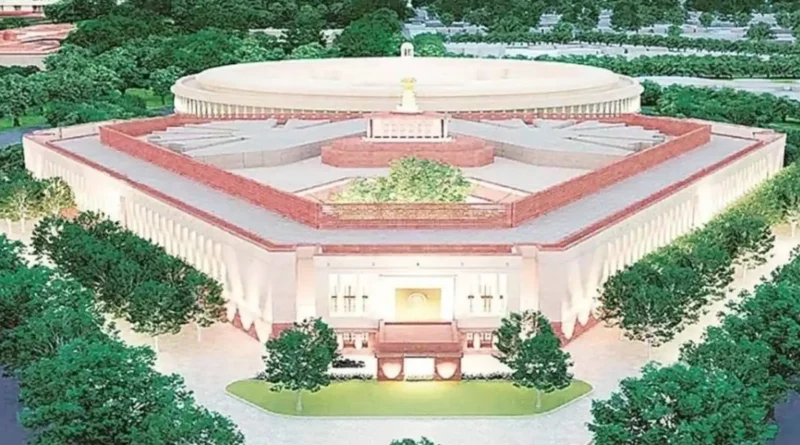Lok Sabha Passes Three Criminal Law Bills to Refit British Era Criminal Justice System in Absence of 97 Suspended MPs
(Judicial Quest News Network)
New Delhi: The Lok Sabha on Wednesday passed three amended Bills that seek to repeal and replace criminal laws that were drafted in British era.
The three Bills are The Bharatiya Nayaya (Second) Sanitha Bill, The Bharatiya Nagrik Suraksha (Second) Sanitha Bill, and Bharatiya Sakshaya (Second) Bill.
These Bills will replace the Indian Penal Code-1860, the Code of Criminal Procedure Act-1973, and the Indian Evidence Act of 1872, respectively.
The three bills were introduced by Home Minister Amit Shah last week.
In an unprecedent manner the proceedings of the Lok Sabha took place in the albescence of 97 Opposition MPs who were suspended over misconduct and unruly behaviour since last week.
A total of 35 MPs participated in the debate over the three new criminal Bills over the course of the two days.
Only MPs from Two political parties All India Majlis-e Itehad-ul Muslimeen (AIMIM) and the Shiromani Akali Dal (SAD) raised concerns about the Bills.
AIMIM MP Asaduddin Owaisi while opposing the Bills said they would increase the powers of the police and the government in the name of bringing in reforms.
“If Bhagat Singh and Mohandas Karamcahnd Gandhi were alive, they would say that this is the Rowlatt Act. The government has to answer who are the actual successor of Macaulay. He said.
He also raised concerns about the clauses of the Unlawful Activities (Prevention) Act UAPA being included in the laws and said that the minorities, Dalits and Adiwasis are facing disproportionate conviction and detentions.
The Bills were passed along with certain amendments moved by Union Home Amit Shah. One of the amendments relates to giving exemptions to doctors in cases of death due to medical negligence.
The three proposed criminal amendment law Bills were under scrutiny, with concerns previously raised by opposition leaders such as Adhir Ranjan Chaudhry and Senior Advocate Kapil Sibal, who have highlighted potential violations of human rights and the inadequacy of safeguards against excesses by law enforcement agencies.
The Bharatiya Nagrik Suraksha (Second) Sanhita now has 531 sections. The first bill consisted of 533 Sections, out of which 150 were sourced from the Code of Criminal Procedure (CrPC) after revisions, 22 Sections of the earlier CrPC were proposed to be replaced, and 9 Sections were to be newly added.
The proposed code has ushered in new concepts like timelines for mercy petitions, a scheme for witness protection and permitting electronic modes for recording statements and collecting evidence. For offences punishable with imprisonment of seven years or more, forensic investigation has been made mandatory.
Similarly, another significant provision expands the scope of summary trials, specially in case where the punishment does not exceed three years. This streamlining of legal process is aimed at expediting justice and ensuring a more efficient judicial system.



